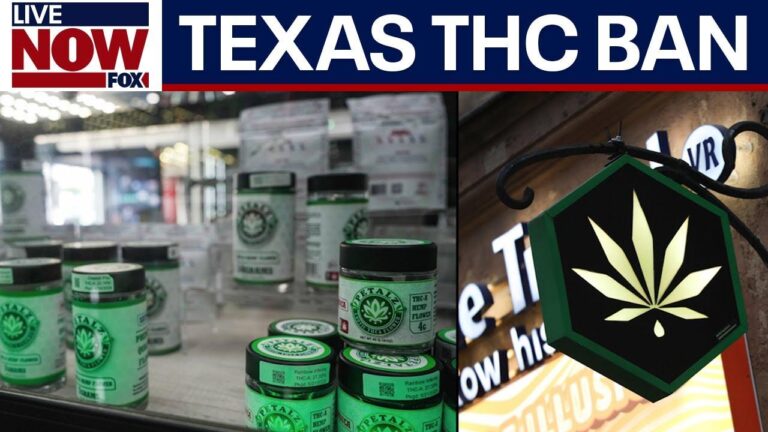Houston Businesses Brace for Governor AbbottŌĆÖs Decision on Texas THC Ban
Houston Retailers Face Critical Choices as Governor AbbottŌĆÖs Veto Deadline Approaches
With Governor Greg AbbottŌĆÖs deadline to either approve or veto the proposed Texas THC ban rapidly approaching, Houston-based retailers are navigating a tense period of uncertainty. Companies heavily invested in delta-8 THC products are actively devising contingency plans to safeguard their operations. The prospect of an abrupt prohibition has prompted many to reconsider their inventory strategies, marketing approaches, and legal compliance frameworks. Industry insiders report a marked increase in consultations with legal professionals, reflecting widespread concern over ambiguous enforcement policies and regulatory compliance challenges that could disrupt the retail landscape.
In anticipation of the governorŌĆÖs ruling, Houston businesses are considering several strategic responses, such as:
- Shifting focus to CBD and hemp-derived products with minimal THC content
- Amplifying advocacy efforts to influence legislative perspectives and public opinion
- Partnering with industry coalitions to coordinate messaging and pool resources
- Preparing exit plans to efficiently liquidate inventory if the ban is enacted
| Business Category | Main Concern | Readiness Level |
|---|---|---|
| Small-Scale Retailers | Loss of stock value | Moderate |
| Mid-Sized Chains | Regulatory adherence | High |
| Large Retailers | Supply chain interruptions | Very High |
Economic Consequences of a Texas THC Ban on HoustonŌĆÖs Local Market
The proposed ban on delta-8 THC products threatens to destabilize HoustonŌĆÖs flourishing hemp-derived product market, which has seen rapid expansion in recent years. Many small businesses and startups specializing in THC-infused wellness and recreational items have experienced significant revenue growth, with some reporting increases exceeding 40% annually. A ban could abruptly halt this momentum, impacting not only direct sales but also peripheral industries such as packaging, distribution, and marketing services that support the sector.
Experts warn that the ban could trigger a cascade of negative effects, including job reductions and diminished tax income for local authorities. Business owners in Houston have expressed apprehension about the uncertain regulatory environment, which hampers investment and innovation. Key anticipated impacts include:
- Revenue contraction: Projected 20-30% decline in sales for retailers focused on THC products
- Workforce reductions: Potential layoffs in manufacturing and retail operations linked to THC goods
- Supply chain challenges: Disruptions as vendors withdraw from a shrinking market
| Industry Segment | Projected Impact | Estimated Timeline |
|---|---|---|
| Retail Revenue | -25% sales drop | Within 6-12 months |
| Employment | -10% workforce reduction | Over 12 months |
| Tax Income | -15% decrease | Fiscal Year 2024 |
Legal Navigation and Compliance Tactics for HoustonŌĆÖs THC Businesses
As regulatory scrutiny intensifies, Houston companies involved in THC product sales are adopting proactive legal strategies to adapt to the shifting landscape. Many are engaging specialized attorneys to interpret the nuances of the proposed ban and to ensure adherence to evolving laws. Common approaches include:
- Reformulating products: Adjusting formulas to reduce or eliminate THC content, aligning with legal limits
- Strengthening supply chain oversight: Implementing stringent testing and certification processes to verify product compliance
- Lobbying efforts: Working with trade organizations to advocate for clearer, business-friendly regulations
Moreover, many businesses are integrating advanced compliance technologies, such as real-time THC monitoring systems, to maintain transparency and reduce risk. The table below highlights key compliance tools currently utilized by Houston enterprises:
| Compliance Solution | Purpose | Advantage |
|---|---|---|
| Independent THC Testing Labs | Third-party product verification | Confirms products meet legal THC thresholds |
| Blockchain Supply Chain Tracking | Ensures transparency and traceability | Prevents distribution of illicit products |
| Regulatory Compliance Software | Automated alerts and reporting | Reduces risk of regulatory breaches |
HoustonŌĆÖs Business Sector Demands Clear Regulations and Support Amid Uncertainty
As the deadline for Governor AbbottŌĆÖs decision looms, HoustonŌĆÖs business community is voicing growing concerns over the lack of definitive regulatory guidance. Entrepreneurs and industry leaders alike feel caught in a state of limbo, uncertain how to proceed amid shifting legal parameters. This ambiguity hampers not only strategic planning but also daily operations. There is a strong call for transparent and consistent regulations that balance compliance requirements with the need to foster innovation and economic growth.
Key issues raised by local businesses include:
- Clear definitions distinguishing legal THC products from prohibited ones
- Financial support mechanisms to ease the transition if restrictions are imposed
- Timely communication from regulatory agencies to prevent inadvertent non-compliance
| Industry Segment | Primary Concern | Requested Assistance |
|---|---|---|
| Retailers | Product legality clarity | Standardized labeling requirements |
| Manufacturers | Supply chain stability | Guidance on sourcing compliant materials |
| Service Providers | Client uncertainty | Educational outreach and resources |
Conclusion: Awaiting a Defining Moment for TexasŌĆÖ THC Market
As Governor AbbottŌĆÖs deadline to veto the Texas THC ban nears, HoustonŌĆÖs cannabis-related businesses remain vigilant, carefully weighing their options. The governorŌĆÖs decision will not only influence the trajectory of the local market but also set a precedent for the stateŌĆÖs approach to cannabis commerce. Stakeholders across Texas are watching intently, recognizing that the outcome could reshape regulatory frameworks and unlock new opportunitiesŌĆöor impose significant constraintsŌĆöon the industryŌĆÖs future growth.


